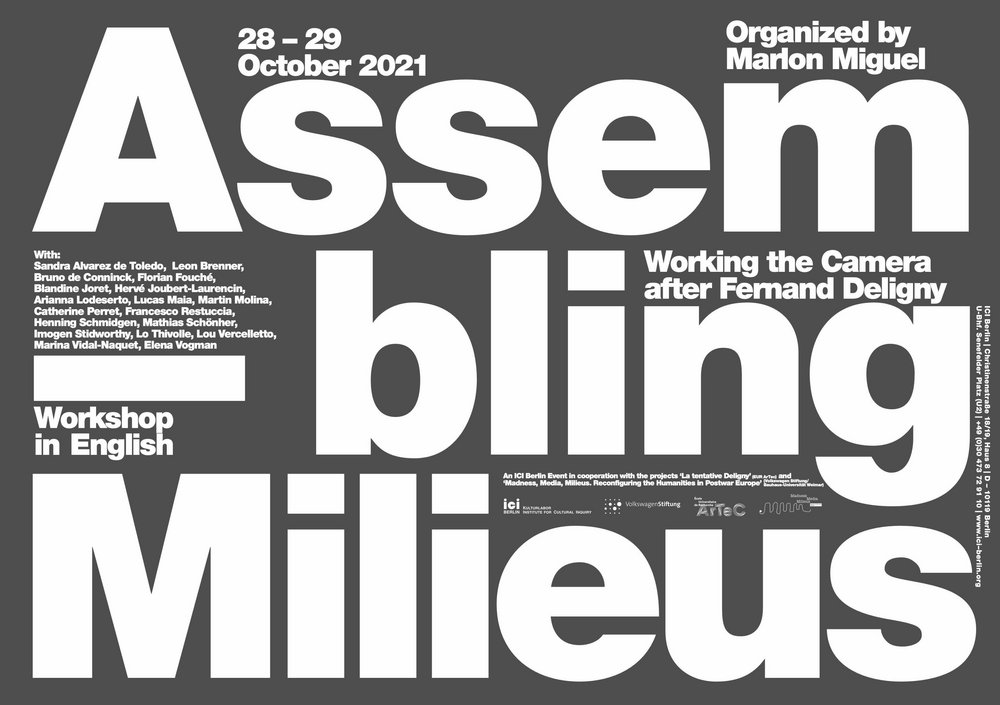Seminar: Kunst, Wissenschaft und Wahnsinn / Art, Science, and Madness (Dr. Marlon Miguel)

Blockseminar – 12.04/13.04/19.04/20.04, 11:00-16:45 Uhr
Seminarraum 103 in der Helmholtzstraße 15
**English version below**
Dieses Seminar fokussiert sich auf die kreativen Produktionen, die als "Kunst", "Irrenkunst" oder präziser ausgedrückt als "poetische Ausdrucksformen" bezeichnet werden können. Diese stammen von Menschen, die unter Bedingungen leiden, die von medizinischen Institutionen als geistige Erkrankungen identifiziert wurden. Wir werden die Entwicklung und die Grenzen der Diskurse untersuchen, die im Laufe des zwanzigsten Jahrhunderts in Mitteleuropa entstanden sind, um diese Produktionen zu definieren.
Zu Beginn erläutern wir das Aufeinanderprallen zweier unterschiedlicher Paradigmen, die zu Beginn des zwanzigsten Jahrhunderts miteinander konkurrierten, um die Beziehung zwischen Kunst und Wahnsinn zu beleuchten. Auf der einen Seite steht die Romantisierung des Wahnsinns, vertreten insbesondere durch den Surrealismus und Expressionismus. Hier gelten die von den "Verrückten" geschaffenen Kunstwerke als Manifestationen reiner, roher und authentischer Erfindungen, die den romantischen Mythos des wahnsinnigen, genialen Schöpfers verkörpern. Demgegenüber steht das Paradigma, das eine Korrelation des Wahnsinns mit Diskursen über die menschliche Degeneration betont. Nach diesem Verständnis werden diese Produktionen als Beweis für Pathologie und menschlichen Verfall betrachtet, wie von Hans Prinzhorn entwickelt. Diese Beweise setzen einen natürlichen Unterschied zwischen dem Normalen und dem Pathologischen voraus, was den "Wahnsinnigen" entmenschlicht.
Im zweiten Schritt beschäftigen wir uns mit der Rückkehr des Mythos der authentischen und spontanen Schöpfung, der sich in der Nachkriegszeit unter Begriffen wie "art brut" oder "outside art", geprägt von Jean Dubuffet, manifestierte.
Im dritten und letzten Teil Seminars untersuchen wir kritische Alternativen zu den Art-Brut-Diskursen, insbesondere die Vorschläge von Mário Pedrosa. Er entwickelte in seinem Dialog mit der Psychiaterin Nise da Silveira ein erneuertes Konzept des "Ausdrucks".
This seminar focuses on the creative productions – labelled as ‘art’, ‘mad art’ or rather, as I prefer, ‘poetic expressions’ – by individuals suffering from something that has been identified by medical institutions as mental illness. It examines the evolution and limitations of discourses that emerged in central Europe throughout the twentieth century to define these productions.
In a first moment, we will elaborate on the clash of two divergent paradigms that in the early twentieth century competed to elucidate the relationship between art and madness: on the one hand, the romanticization of madness; on the other, madness’s correlation with discourses on human degeneration. According to the first paradigm, represented in particular by Surrealism and Expressionism, artworks produced by the ‘mad’ constituted manifestations of pure, raw and authentic invention, actualizing the romantic myth of the mad-genius-creator. According to the second paradigm, these productions became evidence of pathology and human decay, as developed by Hans Prinzhorn. This evidence presupposed a natural difference between the normal and the pathological that dehumanized the ‘insane’.
In a second moment, we will explore the return of the myth of the authentic and spontaneous creation – crystalized in the post-war period under concepts such as art brut/ outside art as coined by French artist Jean Dubuffet.
In a third and final moment, we will investigate critical alternatives to art brut-related discourses, shifting our attention in particular to the propositions developed by Brazilian critic Mário Pedrosa in his dialogue with psychiatrist Nise da Silveira around a renewed concept of ‘expression’.






